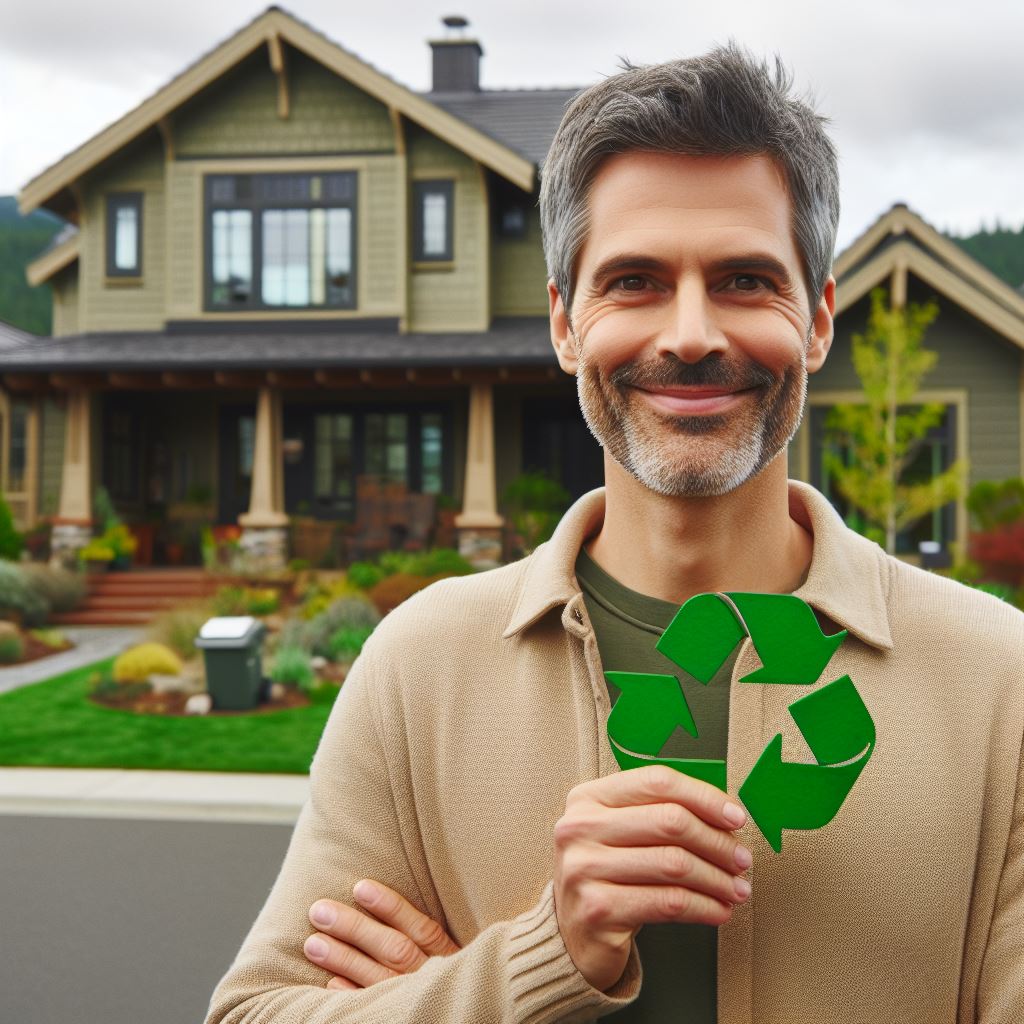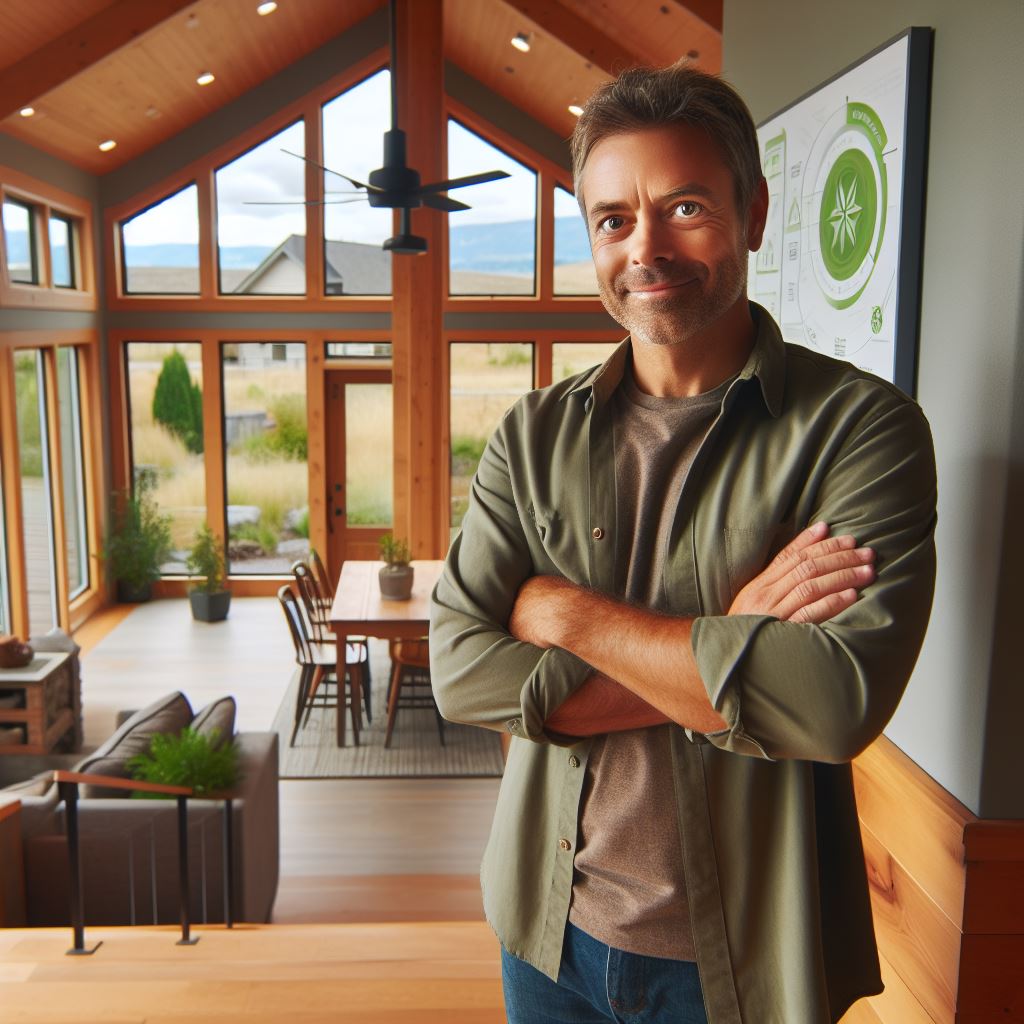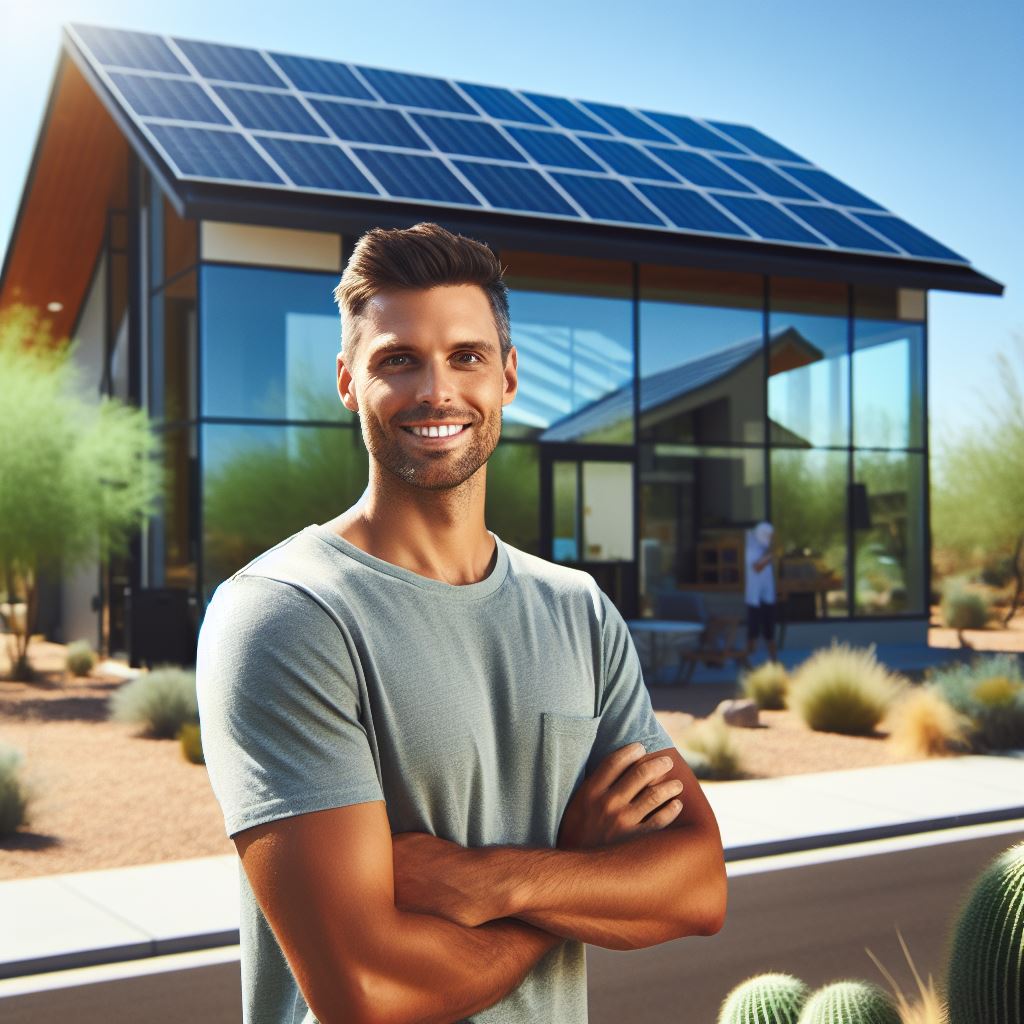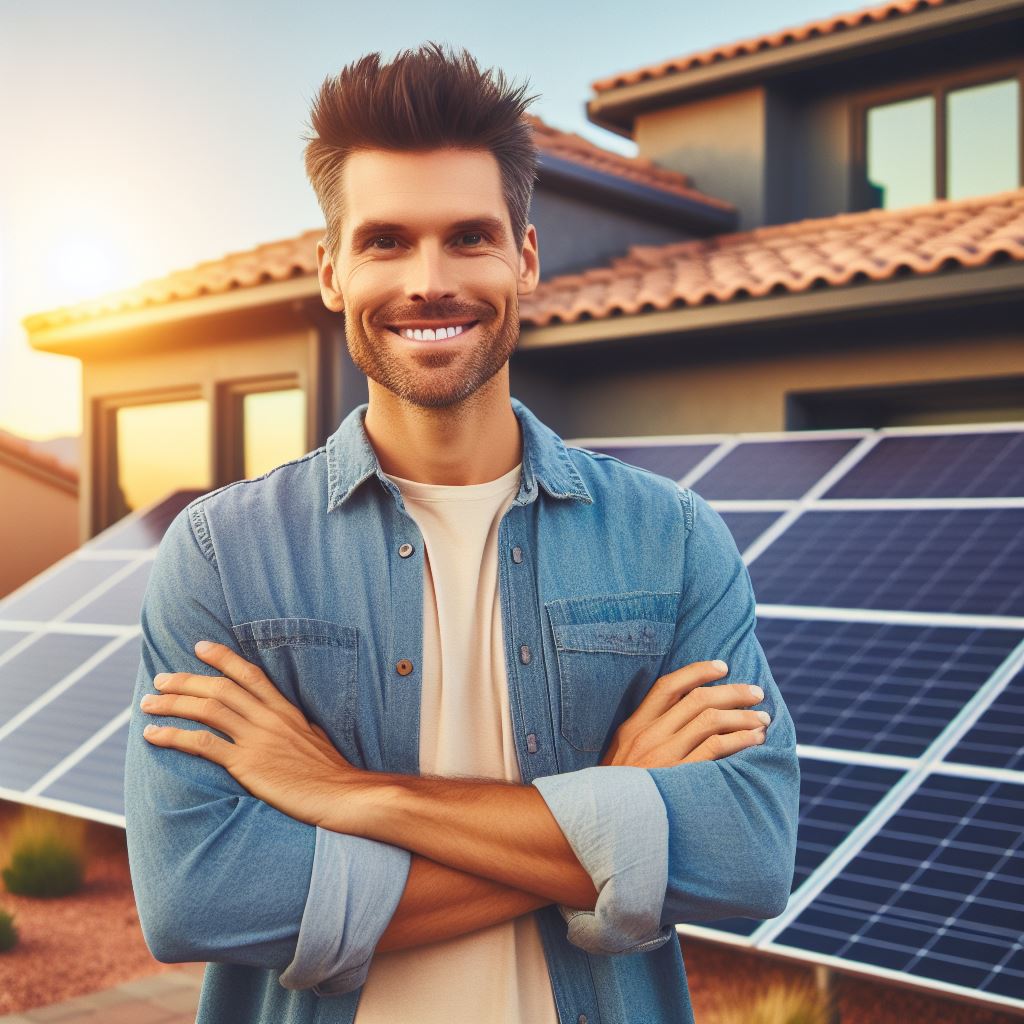Introduction
In this blog post, we will explore Washington State Green Investment.
Investing in green opportunities has become increasingly important in Washington state.
With its commitment to sustainable practices and abundant natural resources, the state has positioned itself as a prime destination for green investors.
From renewable energy projects to eco-friendly real estate developments, there are diverse investment avenues to explore.
Washington state’s green investment opportunities extend across various sectors.
In the renewable energy sector, investors can support wind, solar, and hydroelectric projects that not only reduce carbon emissions but also generate clean and affordable energy.
The state’s emphasis on clean transportation also presents investment prospects in electric vehicle infrastructure, charging stations, and public transit initiatives.
One significant area for sustainable investments in Washington state is the real estate sector.
By focusing on energy-efficient building practices, investors can contribute to reducing greenhouse gas emissions while creating healthy and comfortable spaces for residents.
From LEED-certified commercial buildings to eco-friendly housing developments, the real estate sector offers substantial potential for both environmental and financial returns.
Sustainable investments in the real estate sector not only benefit the environment but also provide long-term economic advantages.
Energy-efficient buildings offer reduced utility costs for occupants, attracting tenants and ensuring higher occupancy rates.
Additionally, green buildings have higher resale value and are more resilient to changing regulations and market demands.
In essence, Washington state’s green investment opportunities are diverse and promising.
By investing in renewable energy projects and sustainable real estate developments, investors can contribute to a greener future while enjoying financial benefits.
Sustainable investments in the state’s real estate sector have the potential to reshape the built environment and create lasting positive impacts on both the economy and the environment.
The current state of green investment in Washington
Overview of the renewable energy sector in the state
Washington state is a leader in renewable energy, with a diverse portfolio including hydro, wind, and solar power.
Hydropower has been a mainstay, accounting for over 70% of the state’s electricity generation.
Wind energy has also experienced significant growth, with several large-scale wind farms operating across the state.
Solar energy is gradually gaining traction, supported by decreasing costs and favorable state policies.
The renewable energy sector in Washington presents attractive investment opportunities for individuals and businesses.
Existing government initiatives promoting sustainable investments
Washington state has implemented various initiatives to encourage and support sustainable investments.
The Renewable Portfolio Standard (RPS) requires utilities to obtain a certain percentage of their energy from renewable sources.
Tax incentives, grants, and low-interest loans are available to promote the development of renewable energy projects.
The State Energy Efficiency and Sustainable Energy Trust (SEED) fund provides financial assistance for energy efficiency measures.
These government initiatives create a favorable environment for green investment and contribute to the state’s sustainable development.
Growth of sustainable building practices in Washington
Washington state is witnessing a surge in sustainable building practices, driven by environmental awareness and economic benefits.
LEED (Leadership in Energy and Environmental Design) certification is prevalent in the state’s construction industry.
Green buildings are designed to minimize energy consumption, reduce waste, and enhance occupant comfort.
Sustainable building practices include the use of renewable materials, efficient insulation, and water-saving technologies.
Investing in sustainable buildings not only contributes to a greener future but also offers long-term cost savings and increased property value.
Overall, Washington state presents a promising landscape for green investment, supported by a well-established renewable energy sector, government initiatives, and the growth of sustainable building practices.
Investors can tap into the state’s potential for renewable energy projects and contribute to a more sustainable future while reaping financial rewards.
Read: Oregon’s Path to Sustainable Property
Washington’s Green Investment Guide
The guide’s purpose and intended audience
The Washington State Green Investment Guide aims to assist investors in sustainable projects.
This comprehensive guide targets both individual and institutional investors.
Its objective is to promote and facilitate funding for environmentally-friendly initiatives.
Besides financial considerations, the guide emphasizes sustainable practices and positive social impact.
Investors seeking ethical and profitable ventures will find this guide particularly valuable.
Overview of the guide’s structure and contents
The guide is divided into easily navigable sections, allowing users to find relevant information easily.
It starts with an executive summary, offering a concise overview of the guide’s main points.
Next, it provides an introduction, outlining the importance of green investments and their potential benefits.
The guide then delves into the specifics, including investment strategies, risk assessment, and due diligence.
Additionally, it offers practical advice on project selection, valuation, and financial analysis.
The guide also covers important aspects such as regulatory considerations, policy incentives, and tax benefits.
Finally, it concludes with a comprehensive list of resources, references, and contact information for further assistance.
Key sections and resources provided in the guide
The section on investment strategies explores various approaches, such as impact investing and ESG integration.
Readers will find a detailed risk assessment framework invaluable in evaluating sustainable projects.
Moreover, the guide emphasizes the importance of conducting thorough due diligence to minimize investment risks.
Project selection guidance assists investors in identifying financially viable and socially impactful initiatives.
The guide provides a comprehensive financial analysis toolkit for evaluating green investment opportunities.
Investors will benefit from understanding the regulatory landscape and policy incentives outlined in the guide.
Furthermore, the guide highlights tax benefits, grants, and subsidies available to green investors.
The extensive list of resources includes relevant publications, organizations, and networks to support investors.
Contacts for local governmental agencies and industry experts are readily available for further guidance.
In fact, the Washington State Green Investment Guide’s purpose is to guide investors in sustainable projects by providing a comprehensive resource that covers various aspects, from investment strategies to regulatory considerations.
Its intended audience includes both individual and institutional investors seeking financially viable and socially impactful opportunities.
By utilizing this guide, investors can make informed decisions, contribute to a greener economy, and create positive environmental and social change.
Read: Portland Real Estate: Eco-Friendly Investing
Investment opportunities in renewable energy
Solar power investments and potential returns
Solar power investments offer a promising opportunity in Washington State’s renewable energy sector.
With ample sunlight and progressive policies supporting clean energy, investing in solar is a viable option with potential high returns.
Investors can choose between residential or commercial solar projects, each offering different levels of risk and return.
Residential solar installations have lower upfront costs and provide steady income through leasing or selling excess energy back to the grid.
On the other hand, commercial-scale solar projects provide greater returns but require larger investments.
These projects often rely on power purchase agreements (PPAs) with utility companies, ensuring a steady stream of revenue over an extended period.
Furthermore, Washington State’s net metering policy allows solar investors to save money on their energy bills by earning credits for any excess energy they generate and feed back into the grid.
The state’s commitment to increasing solar capacity, coupled with declining installation costs, creates a favorable investment landscape.
As technology continues to improve, investors can expect a higher return on their solar energy investments.
Wind energy projects and their feasibility in the state
Washington State also presents significant investment opportunities in wind energy projects.
The state’s geography, particularly along its coast and mountain ranges, provides ideal conditions for wind power generation.
Investing in wind energy can yield attractive returns due to the state’s high wind speeds and supportive policies.
Washington has set ambitious renewable energy targets, aiming for 100% clean energy by 2045, creating a conducive environment for wind project development.
Wind farms in Washington have the potential to generate consistent and reliable electricity, making them an appealing long-term investment.
While initial costs may be higher than solar projects, wind energy investments offer a longer operational lifespan and stable returns.
Additionally, wind energy projects in the state can benefit from federal tax incentives, such as the Production Tax Credit (PTC), which provides a financial boost to investors over a ten-year period.
Investors can participate in wind projects through partnerships or direct ownership, both offering potential returns through power sales agreements or selling electricity to utilities.
As the demand for clean energy increases, wind energy investments are likely to generate substantial profits in Washington State.
Benefits of investing in other renewable energy sources such as hydroelectric power
Although solar and wind energy dominate the renewable energy landscape in Washington State, investing in other sources, such as hydroelectric power, can also be advantageous.
Washington has a well-established hydroelectric power infrastructure, with numerous dams and water resources.
This makes investing in hydroelectric projects a stable and reliable option, ensuring consistent returns over an extended period.
Hydroelectric power investments benefit from the state’s abundant water resources, which provide a consistent and uninterrupted energy supply.
Additionally, hydropower is a mature and proven technology, reducing operational risks for investors.
Moreover, the state’s reliance on hydroelectric power aligns with its commitment to renewable energy and reducing carbon emissions. Investing in hydropower not only generates financial returns but also contributes to the transition to a cleaner and more sustainable energy future.
Investors can explore various hydroelectric project opportunities, including supporting upgrades to existing infrastructure, developing small-scale projects, or partnering with utilities for larger-scale ventures.
Overall, Washington State offers a diverse range of investment opportunities in renewable energy.
Whether it’s solar, wind, or hydroelectric power, investors can expect attractive returns while contributing to the state’s clean energy goals.
Read: Investing in Georgia’s Eco-Friendly Homes

Sustainable Commercial Real Estate Investments
Investing in sustainable commercial real estate has become increasingly popular in Washington state.
Not only does it contribute to environmental conservation, but it also offers several benefits for investors.
Growth of Green Building Certifications in Washington
Washington state has witnessed a significant increase in the number of green building certifications in recent years.
These certifications, such as LEED (Leadership in Energy and Environmental Design) and ENERGY STAR, demonstrate a building’s commitment to sustainability.
Green building certifications help investors identify properties that meet specific energy efficiency and sustainability standards.
This provides reassurance that their investment aligns with environmentally responsible practices.
By investing in commercial buildings with green certifications, investors can tap into a growing market demand for sustainable properties.
Research indicates that sustainable buildings tend to attract tenants and command higher rent rates.
Benefits of Investing in Energy-Efficient Commercial Buildings
Investing in energy-efficient commercial buildings offers numerous advantages for investors in Washington state.
- Cost Savings: Energy-efficient buildings reduce operating costs by consuming less electricity and water, resulting in lower utility bills for tenants and increased profitability for investors.
- Tax Incentives: Washington provides tax incentives, such as exemptions on sales and use tax for energy-efficient equipment and improvements, which can significantly enhance returns on investment.
- Resilience to Climate Change: Sustainable buildings are designed to withstand extreme weather events, minimizing potential damage and repair costs, protecting long-term value.
- Reduced Environmental Impact: By investing in energy-efficient properties, investors contribute to reducing greenhouse gas emissions and conserving natural resources, positively impacting the environment.
Additionally, energy-efficient buildings promote better indoor air quality, enhancing the well-being and productivity of occupants.
This can lead to higher tenant satisfaction and lower vacancy rates, ensuring a stable income stream for investors.
Examples of Successful Sustainable Real Estate Projects in the State
Washington state has witnessed several successful sustainable real estate projects in recent years, showcasing the potential of green investments.
- The Salesforce Tower in Seattle: This LEED Platinum-certified skyscraper is not only an architectural marvel but also a sustainability champion, employing state-of-the-art energy-saving technologies.
- The Bullitt Center in Seattle: As the world’s greenest commercial building, this six-story structure produces more energy than it consumes, featuring rainwater harvesting and composting toilets.
- The Hyatt Regency in Bellevue: This hotel showcases energy-saving measures such as rooftop solar panels, LED lighting, and a comprehensive recycling program.
These examples demonstrate that sustainable commercial real estate investments can be financially viable while promoting environmental stewardship.
They inspire other investors to follow suit and contribute to creating a greener future for Washington state.
In general, sustainable commercial real estate investments offer a multitude of benefits while aligning with global sustainability goals.
Washington state’s growing number of green building certifications, combined with the advantages of energy-efficient buildings, make it an ideal destination for investors seeking environmentally responsible opportunities.
Through successful projects, the state sets an example for others, fostering a sustainable and prosperous real estate market.
Read: Green Construction: Colorado’s New Wave
Residential green investment options
Overview of energy-efficient home upgrades and their benefits
- Insulating your home properly can reduce energy consumption and lower utility bills.
- Installing energy-efficient windows and doors helps to retain heat during winters and keep the house cool during summers.
- Upgrading to energy-efficient appliances reduces energy waste and saves money in the long run.
- Switching to LED lights not only saves energy but also has a longer lifespan compared to traditional bulbs.
- Using programmable thermostats allows you to regulate your home’s temperature efficiently and reduce energy usage.
Government incentives for energy-efficient residential investments
- The federal government provides tax credits for energy-efficient home improvements, such as solar panel installations.
- Washington State offers various rebates and incentives for energy-saving upgrades in residential properties.
- Local utility companies may offer special programs and grants to encourage energy-efficient investments.
- Energy Trust of Oregon provides cash incentives for homeowners who make energy-saving improvements to their homes.
- Some banks offer green mortgages with lower interest rates for energy-efficient homes.
Sustainable communities and housing developments in Washington
- Washington State has several sustainable communities that focus on reducing carbon footprint and promoting green living.
- The Issaquah Highlands community is known for its energy-efficient and environmentally friendly housing options.
- Seattle’s High Point neighborhood is a model for sustainable urban redevelopment with LEED-certified homes.
- Vashon Island features eco-friendly residences with sustainable building materials and renewable energy systems.
- The Rainier Vista redevelopment project in Seattle incorporates energy-efficient features into its affordable housing units.
Investing in residential green options not only benefits the environment but also saves homeowners money in the long run.
Energy-efficient home upgrades, such as insulation, energy-efficient windows, and appliances, can significantly reduce energy consumption and lower utility bills.
The federal government and Washington State offer various incentives, including tax credits and rebates, to encourage homeowners to make energy-saving investments.
Additionally, local utility companies and organizations like the Energy Trust of Oregon provide additional grants and programs to support green initiatives.
Homebuyers looking for sustainable communities and housing developments can explore options like Issaquah Highlands, High Point neighborhood in Seattle, Vashon Island, and the Rainier Vista redevelopment project.
These communities prioritize environmental sustainability and offer eco-friendly features, such as sustainable building materials and renewable energy systems.
By embracing residential green investment options, homeowners can contribute to a greener future while enjoying the financial benefits of reduced energy costs and potential incentives.
Challenges and Considerations in Green Investing
Achieving sustainability and investing in green projects can bring significant benefits to both investors and the environment.
However, there are several challenges and considerations that need to be addressed before embarking on such investments.
Financing Options and Potential Barriers
- Limited financing options: Finding appropriate financing for green projects can be challenging.
- High upfront costs: Green investments often require significant upfront capital, which can deter some investors.
- Risk perception: Some investors perceive green investments to be riskier compared to traditional investments.
- Limited track record: The lack of a proven track record can make it difficult to attract investors.
- Long investment horizons: Many green projects have longer investment horizons, requiring patience from investors.
Regulatory and Policy Considerations in Sustainable Investments
- Changing regulations: Sustainable investments are subject to evolving regulations, requiring ongoing monitoring and compliance.
- Inconsistent policies: Inconsistent policies across different jurisdictions can create uncertainty for investors.
- Rewarding sustainable practices: Governments need to implement policies that incentivize sustainable investments.
- Lack of standardized reporting: The absence of standardized reporting frameworks makes it challenging to evaluate the impact of green investments.
- Political and policy shifts: Changes in government priorities can lead to shifts in support for green investments.
Importance of Due Diligence and Consulting with Experts
Before making any green investments, it is crucial to conduct thorough due diligence and seek advice from experts in the field.
- In-depth research: Investors should thoroughly investigate the financial viability and long-term prospects of green projects.
- Environmental assessments: Understanding the environmental impact and sustainability of the project is essential.
- Consulting experts: Engaging with professionals who have expertise in green investments can provide valuable insights.
- Risk assessment: Proper risk assessment should be conducted to evaluate the potential challenges and mitigate them.
- Legal considerations: Investors must be aware of any legal obligations and compliance requirements associated with green investments.
In a nutshell, green investing offers a promising avenue for achieving sustainability while generating financial returns.
However, it is important to acknowledge and address the challenges and considerations that come with these investments.
Financing barriers, regulatory uncertainties, and the need for due diligence and expert advice are all integral to successful green investments.
By overcoming these challenges, investors can contribute to a greener future while reaping the rewards of sustainable investments.
Conclusion
Washington State presents a plethora of green investment opportunities across various sectors.
From renewable energy projects to sustainable infrastructure development, the state boasts a fertile ground for investors seeking to align their portfolios with environmental objectives.
The Green Investment Guide serves as a comprehensive resource, offering insights into the state’s eco-friendly initiatives, available incentives, and emerging trends.
Investors are urged to delve into the guide, leveraging its wealth of information to make informed decisions that not only yield financial returns but also contribute positively to the environment and society.
Embracing sustainable investments is paramount for the future of real estate in Washington.
With growing concerns over climate change and environmental degradation, there is a shifting paradigm towards eco-conscious development and green building practices.
Investors who prioritize sustainability stand to benefit from increased resilience, reduced operational costs, and enhanced market competitiveness.
Moreover, sustainable real estate investments align with the state’s broader objectives of fostering environmental stewardship and promoting sustainable economic growth.
By investing in green buildings, renewable energy projects, and eco-friendly infrastructure, investors can play a pivotal role in advancing Washington’s sustainability agenda while reaping long-term financial rewards.
Furthermore, sustainable real estate developments are increasingly appealing to tenants, homeowners, and businesses alike, driving demand for green-certified properties and eco-conscious communities.
As consumer preferences continue to evolve towards sustainability, investments in energy-efficient buildings and environmentally friendly amenities are poised to outperform conventional real estate assets.
The importance of sustainable investments for the future of real estate in Washington cannot be overstated.
By embracing green principles and integrating sustainability into investment strategies, investors can contribute to the state’s transition towards a more resilient, equitable, and environmentally sustainable future.




